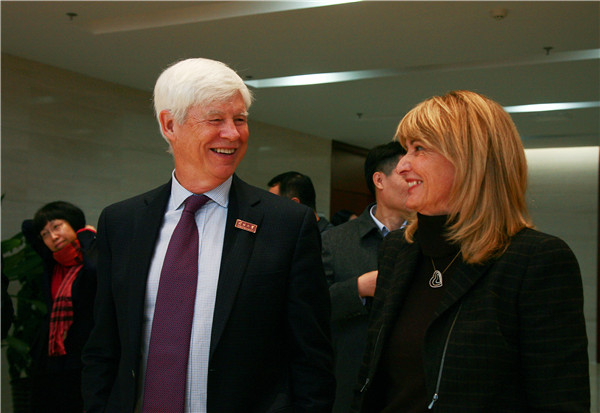 |
|
Engle and his wife, Mary, attend the forum at Nankai University, where he is an honorary professor. [Photo provided to China Daily] |
"I decided that I wanted to work on something that more than 10 people in the world will understand," he says of the reason behind changing streams in academics.
While studying economics was at first a "slow and painful process", Engle believes his background in physics and statistics eventually helped him stand out as an economist.
"Because in physics we do experiments to measure some complicated things and figure out what they really mean. That's the same way we do economic analysis," he says.
A longtime professor of economics, Engle now teaches at New York University's Stern School of Business, where he is the Michael Armellino professor of financial services management.
Engle paid his first visit to China in 1985, when he was invited to teach an econometrics course at Renmin University in Beijing. During the six-week program, which was sponsored by the Ford Foundation and China's Ministry of Education, Engle and two other American teachers taught students from different parts of the country.
Chinese students were rather quiet back then, and he did all sorts of things, including giving them small souvenirs, to get them to talk.
As part of the trip, Engle toured Shanghai, Guilin and Chengdu and visited many tourist sites in the cities.
"China has changed so dramatically in 30 years. That's extraordinary."
People in Beijing were still wearing old-style blue outfits, and there were very few cars and everybody was riding a bicycle in the 1980s. It was also hard to find people who spoke English, and he had to get somebody to write down in Chinese the name of his hotel so that he could tell a taxi driver to take him back, Engle says.